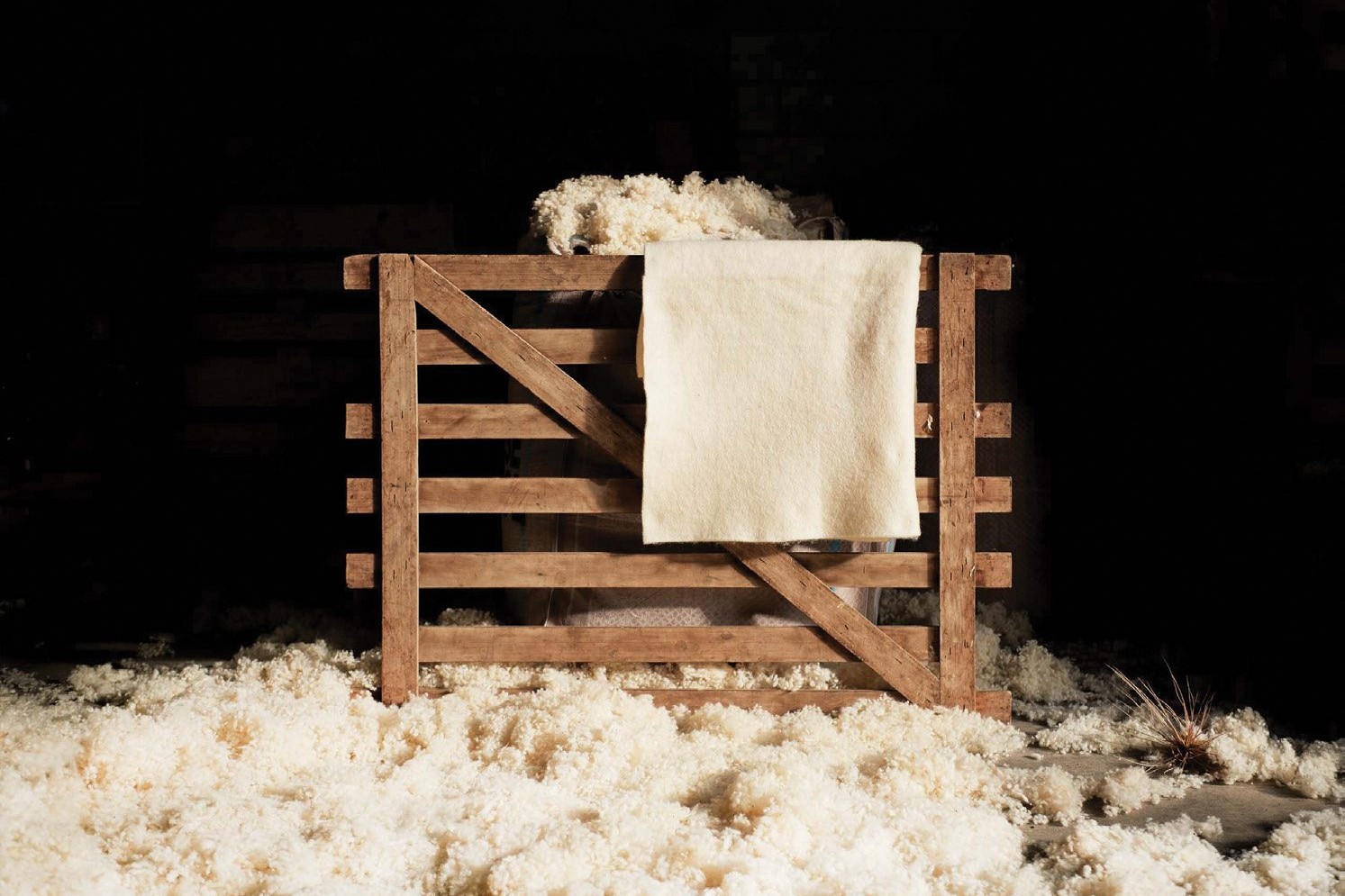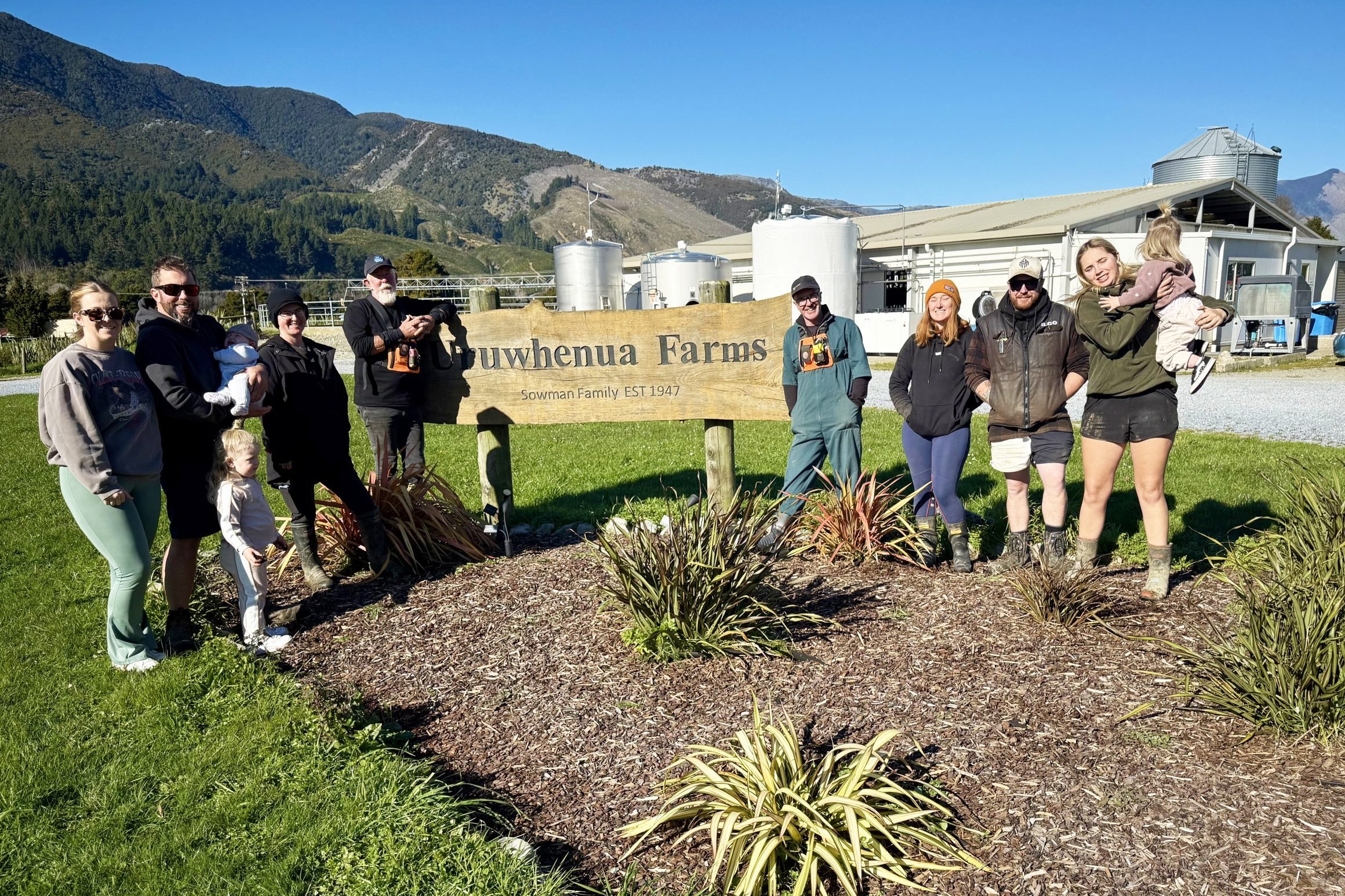Strong wool renaissence
A long-established wool company and furniture business have linked to provide sustainable furnishings. By Annabelle Latz.

A long-established wool company and furniture business have linked to provide sustainable furnishings. By Annabelle Latz.
It all began with a chance phone call a year ago, between two people with the shared desire to give strong wool its much-deserved due.
Amanda Dorset of sheepskin furniture company Wilson & Dorset said this new venture with Wisewool has spared half a tonne of plastic furniture fill from landfill so far. Her two-year prediction is one tonne, which is four 20-foot shipping containers, and her 10-year prediction is 500t.
“I’m going to stop you there, the answer is yes,” was Amanda’s reply to Harry Urquhart-Hay, sales and marketing director for his family business Wisewool. He rang Amanda and suggested they create sustainable furniture together.
The phone call was received late in 2021, Harry had a suggestion from a mutual friend and celebrity Kiwi chef Al Brown that the pair needed to chat.
Amanda and her husband Ben established their Wanaka-based sheepskin furnishings company 16 years ago, specialising in cushions, foot stools, stackable ‘stone set’ cushions and beanbags. They sell domestically and export.
It has always weighed on Amanda’s mind that the natural and sustainable product on the outside was not matched on the inside.
Until a year ago, their range of cushions, foot stools and beanbags were being filled with plastic synthetic fill because they hadn’t been able to identify a wool company partner to complete their picture of creating an entire piece of sustainable furniture.
Today, their ‘fully woolly’ range is launching them into the future.
“It feels so good, because I had been harbouring this frustration for so long. This is a collection I can say we’re truly proud of through and through,” Amanda says.
“Each product is of the land, harnessing wool’s natural attributes, and will return to the land and fully break down at the end of its long life.”
Strong wool has traditionally focused on carpets, which is a really critical part of the story, but there are so many opportunities with strong wool, she says.
Despite the carpet marketing, houses using wool carpet does not stack up like it used to. Turn the clock back to the 1940s and 80% of houses had wool carpet, now that figure is just 15%.
“We were sold the synthetic story and we all bought it. Strong wool really needs its time now, there is finally so much innovation happening,” Amanda says, linking this to her former role working in sales and marketing for Icebreaker, servicing the European market where she saw the power of re-education.
“For 70,000 years humans have had a relationship with wool. Consumers don’t need convincing this is a good fibre, they are already there.”
Harry’s great great grandfather William H Smith started the Gisborne Wool Company in 1894, and preceding that he cleared gorse as a labourer. Originally from Canterbury in Kent, England, William used to wash the wool on the banks of the Taruheru River, dry it in the sun, and then stack it on barges where it would head straight to London.
“Our family has been in the wool industry for 127 years now,” Harry, who represents the fifth generation, says.
A couple of years ago Gisborne Wool Company chief executive Henry Hansen (Harry’s uncle) was sick of the weakness in strong wool prices, which makes up 85% of the country’s wool clip. He conceded nothing would change if value could not be added.
The family business collects 13,000 bales of strong wool from 200 farms up and down greater Tairawhiti Gisborne’s coast.
All the wool is graded in Gisborne, classed into different micros, length and colour. It is scoured in Hawke’s Bay and then sent to Wisewool’s factory in Matamata where it is engineered into different ingredient products.
“This collaboration with Amanda and Ben is super exciting, we’re all wanting to put strong wool back on the map.”
Harry agrees with Amanda that there is a shift in what consumers expect and want, including wanting to support local.




